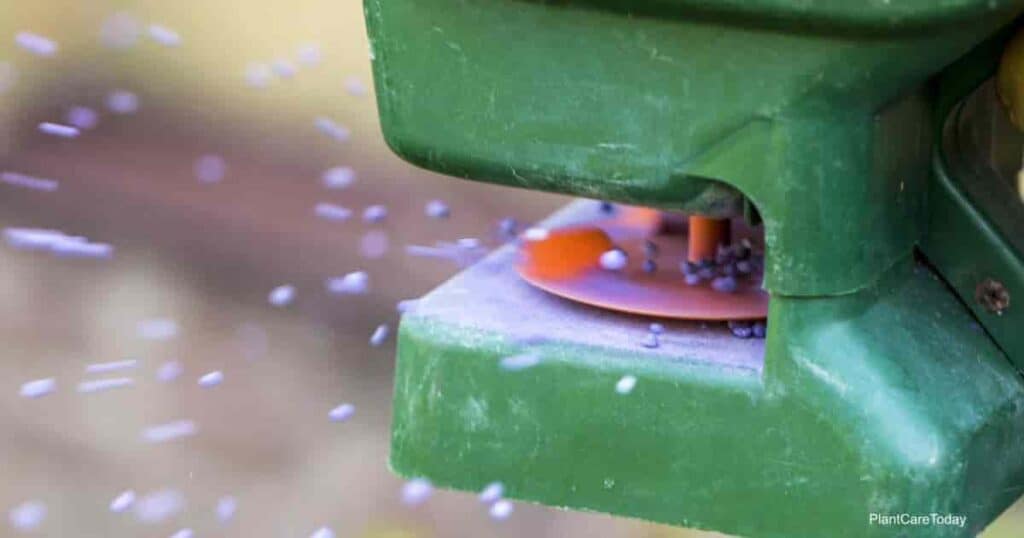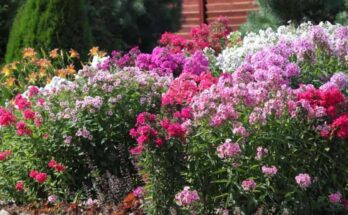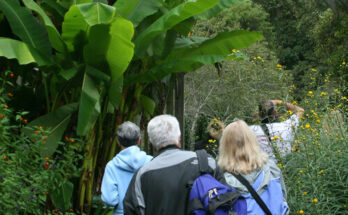No doubt you already know that fertilizer can help plants and is almost essential for potted plants.
However, you might not be aware that there is a wide range of fertilizer types, all of which have specific uses.
Enter the 20-0-0 fertilizer, a surprisingly helpful blend, especially for lawns, but it isn’t something you want for your houseplant.
But just what is 20-0-0 fertilizer, and where or when should you use it?
What Is 20-0-0 Fertilizer Used For?
This blend has some surprisingly good benefits, although the nitrogen content isn’t for general use.
Read on to learn more about the unusual qualities of this potent fertilizer.
The Importance Of Nitrogen
First and foremost, nitrogen is known as the leading proponent of healthy foliage growth.
However, it goes well beyond this fact.
Nitrogen feeds beneficial nematodes and attracts various critters that help aerate the soil.
It’s essential to the formation of amino acids used to create new growth.
Nitrogen is also present in enzymes that help the roots regulate food and water uptake.
Last (but certainly not least), nitrogen is part of the chlorophyll molecule, which allows plants to convert light into energy.
Why Only Nitrogen?
Nitrogen is a tricky nutrient to deal with, as too little can stunt a plant’s growth, while too much can become toxic.
So why use a fertilizer that only has nitrogen in it?
The truth behind this fertilizer is that it isn’t just nitrogen.
The 20-0-0 refers to the fertilizer’s NPK ratio, but many micronutrients are also present in the mix.
The exact micronutrient content can vary from one product to another, but many, such as Gordon’s Liquid Lawn & Pasture, contain copper, manganese, and zinc.
Other micronutrients that might be present include such essentials as iron and magnesium.
Where To Use 20-0-0 Fertilizer?
This fertilizer isn’t a good choice for feeding any old plant.
It’s most often used on its own with lawns, fields, pastures, golf courses, and sports fields.
Of course, this fertilizer can also be used as a supplement or a weed killer.
Using 20-0-0 As A Supplement
There are many great homemade fertilizing options, such as composted cardboard, various types of manure, and even eggshells and worm castings.
Not all these options are high in nitrogen, and some have very little nitrogen content.
Coffee grounds, rich in nitrates, function best as a composting aid and feed for worms and beneficial nematodes.
Even with an organic component (such as dried leaves or coffee filters), the nitrogen from coffee grounds isn’t easily processed by your plants.
In such cases, it’s better to mix 20-0-0 fertilizer into your regular mix.
The fertilizer provides easily processed nitrogen and can be diluted as needed to avoid nitrogen toxicity.
Using 20-0-0 As A Weed Killer
Speaking of nitrogen toxicity, this can actually be beneficial for certain plants with a higher tolerance.
20-0-0 is great for grasses, including grains, but can kill off a wide range of weeds.
Broadleaf weeds are susceptible to excess nitrogen, allowing you to control chickweed, clover, dandelion, knotweed, mallow, plantain, purslane, and many other annoying weeds.
Granular vs Liquid Formulas
Granular formulas are usually less desirable because they’re designed for slow release.
This may sound positive, but nutrients tend to dissolve at different rates, meaning your plants will get a burst of one nutrient and very little of another.
This isn’t a big deal for a formula such as 20-0-0 since there’s only one macronutrient to worry about.
However, you will want to reserve slow-release formulas for areas with plenty of rain, as the granules will need water to break down and absorb into the soil.
On the flip side, liquid-soluble formulas have already been dissolved and are diluted further in water before application.
These formulas absorb into the ground immediately, ensuring your plants get the right amount of each nutrient and won’t have to wait to use them.
They’re also well-suited for drier areas while still useful in rainy regions.
The biggest downside is that they must be applied more frequently, which can be time-consuming if you create a large field or lawn.
Be Cautious When Using 20-0-0 Fertilizers
Follow all instructions on the package carefully, as each product will have its mixing or application instructions.
Avoid using this fertilizer near any broadleaf garden plants you want to keep, as the nitrogen can be spread out by rain and end up poisoning anything nearby.
You’ll also want to avoid using it near any drainage system or natural water features, which can lead to contamination.
Also, avoid applying before a heavy storm, which could wash the fertilizer into places where it’ll do more harm than good.
Finally, never use 20-0-0 fertilizers as a supplement without properly diluting them to ensure the resulting nitrogen content won’t be too high.
Source link
Originally posted 2022-07-26 13:56:25.





